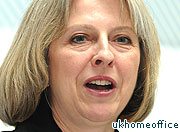Sweeping powers designed to target “extremists” and protect ‘British values’ have been formally announced today, despite widespread concerns that they threaten free speech.
The Prime Minister David Cameron has said that the Queen’s Speech will include plans for “Extremism Disruption Orders” (EDOs) within a new counter-extremism Bill.
Using a wide definition of ‘extremism’, EDOs would place restrictions on individuals or organisations who “spread, incite, promote or justify hatred” against others on a number of grounds, including religion, sexual orientation and transsexualism.
Broad nature
But The Christian Institute, the National Secular Society, The Guardian and several MPs have all criticised the broad nature of EDOs.
Whilst aimed at Islamic extremists, they could also be used against a range of people including traditional marriage supporters, environmental campaigners and animal rights groups.
Simon Calvert, spokesman for The Christian Institute said: “While everyone applauds the principle of tackling Islamic extremism, comments by David Cameron and other senior members of the Government suggest EDOs will exceed even Labour’s notorious religious hatred Bill or Section 5 of the Public Order Act.
Free speech
“Both of these laws had to be rewritten by the House of Lords – in the face of Government opposition – because of their detrimental effect on free speech.”
“Last year the Government was forced to back down on proposals to outlaw ‘being annoying in a public place’. Now it looks like they are returning to their theme with a vengeance.”
“The Christian Institute warns the Government not to rush through these measures, but to engage with groups with a track record of defending free speech.”
Legitimate expressions
“In the current climate, there is a real risk that EDOs will be used to clamp down on legitimate expressions of dissent.
Mr Calvert concluded: “If the Government does not ensure that there are adequate safeguards, then, because of the low burden of proof, it is perfectly plausible that comedians, satirists, campaign groups, religious groups, secularist groups, and even journalists could find themselves subject to these draconian measures.
Keith Porteous Wood, Executive Director of the National Secular Society, has said that there is a “huge arsenal of laws already” in place to tackle terrorism, and warned that EDOs “are almost unchallengeable and deprive individuals of their liberties”.
Spreading ‘hatred
Little detail about the powers has been provided so far, but information last year indicated that the Home Secretary would only have to “reasonably believe” that a group or individual was spreading ‘hatred’. Just the risk that people or organisations could cause “distress” to others would be enough to justify an EDO.
Dominic Grieve, the former Attorney General, warned that someone may “end up being prosecuted for expressing a point of view which the Home Secretary has considered is extreme”.
The stated aim of EDOs – which would be civil orders imposed by a High Court – is to crack down on people who are deemed to spread extremist ideas but stay within the law.
Challenge bigotry
The Home Secretary Theresa May told BBC Breakfast this morning that the proposals are aimed at protecting ‘British values’, and said that preaching messages of hate and intolerance can lead to radicalisation.
Mrs May has told a National Security Council meeting today that institutions will be empowered to “challenge bigotry and ignorance”.
The Prime Minister has said that part of what “defines us as a society” is equal rights regardless of race, gender or sexuality.
Freedom of speech
Mrs May maintained that freedom of speech will be protected.
EDOs were unveiled ahead of the Conservative Party conference last year and appeared in their election manifesto.

